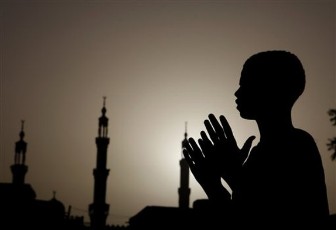Sudan’s clerics vow to oppose amendments to non-Muslim laws
September 01, 2010 (KHARTOUM) – A set of legal amendments proposed by the Commission for Non-Muslims Rights (CNMR) to abolish ban on the activities of non-Muslims in Sudan’s capital Khartoum has sparked a standoff with the state’s official clergy, which yesterday slammed the amendments as “a pretext for spreading chaos and immorality.”
 The genesis of the story dates back to August 30 when the CNMR disclosed plans to propose amendments to the law to exempt non-Muslims from restrictions imposed on civil liberties in the capital.
The genesis of the story dates back to August 30 when the CNMR disclosed plans to propose amendments to the law to exempt non-Muslims from restrictions imposed on civil liberties in the capital.
Those restrictions include a curfew on holding private parties after 11 p.m.
On the same day, CNMR’s chairman Deng Kual said after meeting Salva Kiir, vice-President and president of south Sudan, that “there are many challenges facing the commission and non-Muslims in the national capital, including the difficulties created by the local order of 1996 which bans the activities of non-Muslims in the capital.”
The CNMR is established under the aegis of the Comprehensive Peace Agreement (CPA), the peace deal which in 2005 ended decades of civil war between the Muslims-dominated North Sudan and the South where most people follow Christianity and traditional beliefs.
Under the CPA, North Sudan is governed under Islamic Shar’iah laws. The morality police known as public order police is allowed to run rampant, arresting women for “indecent dressing” and cracking down on brewers of local alcohol.
The south is exempt from Islamic laws and enjoys semi-autonomous rule. Most of non-Muslims in the capital Khartoum are from the south and the Nuba Mountains area.
The ruling National Congress party (NCP) is carrying out a campaign to promote the choice of unity among Southerners ahead of the 2011 referendum which may create the world’s newest state.
Most observers say that Southerners picking to secede is all but certain.
But the Muslim Scholars Authority (MSA), which is the state-controlled clergy whose duty is to issue Fatwas (religious edicts), yesterday voiced opposition to the proposed amendments.
The MSA’s secretary-general, Mohamed Osman Salih, called for an urgent meeting to draft a response to the four proposed amendments concerning non-Muslims rights.
He was quoted by the independent daily newspaper Al-Sahafah as saying that “any attempt to introduce amendments to the rights of non-Muslims would contravene the CPA and serve as a pretext for spreading chaos and immorality.”
Salih further revealed that the MSA would hold a meeting with the authorities of Khartoum State next Monday to discuss the same issue, stressing that these amendments would have “extremely bad ramifications” if adopted.
The MSA was steeped in controversy last year when it issued a fatwa banning Muslims from participating in demonstrations planned at the time by the SPLM and opposition groups to protest against the ruling party’s stonewalling of the referendum law.
It labeled those organizing the demonstrations as “the enemies of Islam.”
(ST)
